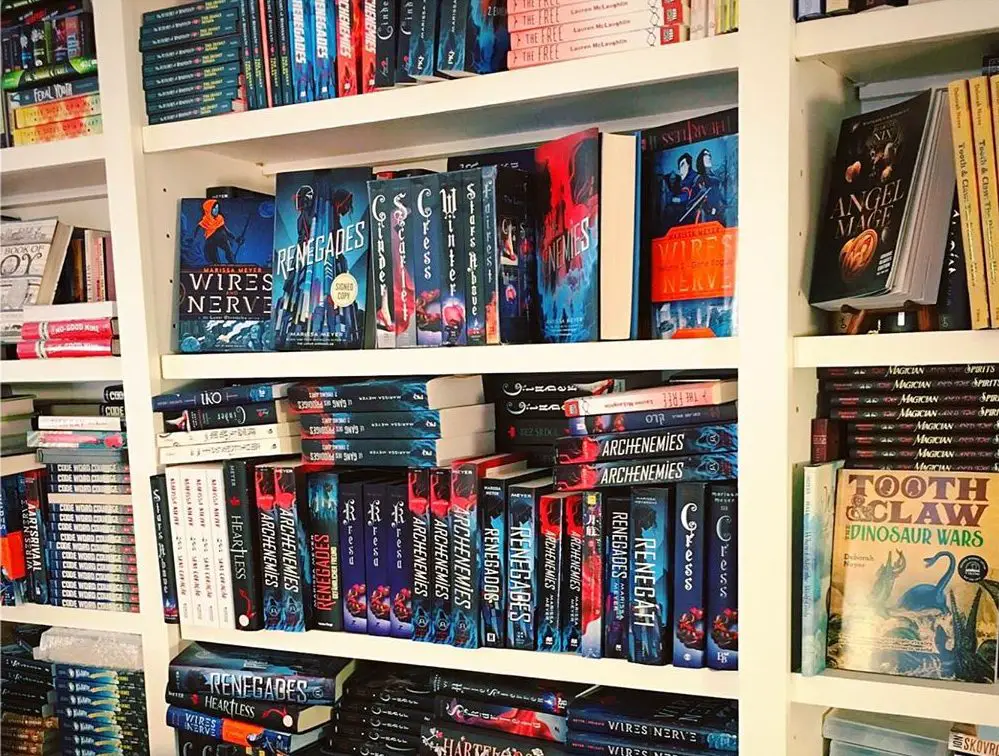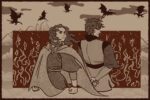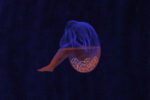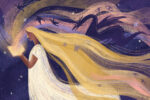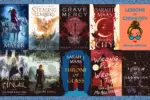If you’re a reader who enjoys learning about ancient myths and legends, now is the time to thrive with these engaging book series. Myth and fairytale retellings are in vogue and reading about ancient mythologies is no longer just a school time nuisance.
Myths and legends have been making a comeback for a long time — Disney has been retelling fairytales for decades, and myths have been retold in various forms with novellas like the “Penelopiad” by Margaret Atwood, books like “American Gods” by Neil Gaiman and series like “Percy Jackson and the Olympians” by Rick Riordan.
But Gaiman, Atwood and Riordan are no longer the only voices for entertaining mythology retellings, and Disney is no longer the only place to go for all your fairytale needs. Ancient lore and fairytales are now being retold in countless different ways. If you want to read an imaginative and whimsical tale about princes and princesses or gods and goddesses, your options are now endless. Here are three of the best book series that retell ancient myths and fantasies:
1. “The Lunar Chronicles” by Marissa Meyer
“Even in the future the story begins with once upon a time.”
Everyone knows the tales in the four-book “Lunar Chronicle” series: Cinderella and her evil stepmother, Little Red Riding Hood and the big bad wolf, Rapunzel, stuck in her tower and Snow White and the poison apple. But Marissa Meyer takes those tales and sets them in the future, where Cinderella isn’t a helpless girl waiting for her prince, but a hardworking mechanic named Cinder. In this world, she doesn’t have the same rights as most people, as her stepmother constantly reminds her — Cinder is a cyborg.
Throughout the series, Meyer weaves the tales of Cinderella, Little Red Riding Hood, Rapunzel and Snow White into one entertaining and endearing story. Starting with “Cinder,” Meyer takes the well-known fairytales and turns them into a fun, powerful and futuristic four-book series. Instead of the big bad wolf, there are hybrid, special operative wolf men. Rapunzel isn’t a girl stuck in a tower, but an intelligent hacker who’s been imprisoned on a satellite.
https://www.instagram.com/p/BiUUWhdlCBj/?utm_source=ig_web_copy_link
Once you pick “Cinder” up, you’ll want to keep reading to find out what happens in the sequels, “Scarlet,” “Cress” and “Winter,” and wonder why you didn’t start reading “The Lunar Chronicles” sooner.
2. “A Court of Thorns and Roses” by Sarah J. Maas
“Beauty didn’t mean anything in the forest.”
In this three-book series, Sarah J. Maas loosely retells both fairytale and fable, starting with the tale of “Beauty and the Beast,” and merging ancient myth into the second and third installment.
The series begins with Feyre in the woods, hunting to feed her family. But thanks to a fateful encounter with a wolf and an ancient treaty, Feyre must live out the remainder of her human life in the fairy realm, echoing the curse and confinement of the original “Beauty and the Beast” fairytale.
https://www.instagram.com/p/BzgUp_agk7c/?utm_source=ig_web_copy_link
“A Court of Thorns and Roses” is the first book in the series, and readers might find themselves frustrated with the love story in the first book. They might wonder why the love interest’s extremely overbearing nature is looked upon in a positive way. However, Sarah J. Maas doesn’t continue to glorify that beastly behavior in the second book, “A Court of Mist and Fury.”
Maas takes Feyre on a journey of self-discovery and character development, and the second installment begins a lovely retelling of the Hades and Persephone myth that will leave readers ready for the final installment, “A Court of Wings and Ruins”
3. “The Song of Achilles” and “Circe” by Madeline Miller
“We were like gods at the dawning of the world, and our joy was so bright we could see nothing else but the other.”
Madeline Miller hasn’t created any futuristic, modern or otherworldly retellings of the Greek myths. Instead, she accurately retells the tales, reimagining them from a whole new and captivating perspective.
“The Song of Achilles” is about the Trojan War, but that’s only part of the story. In this book, Miller retells “The Iliad,” and she stays true to the source material of Homer’s epic poem about the Greek hero Achilles and his closest companion, Patroclus.
Homer never explicitly described the nature of these two characters’ relationship, but in her novel “The Song of Achilles,” Miller chose to write the Greek hero Achilles’ story from the point of view of Patroclus, retelling the ancient text as a romance between him and the Greek hero. “The Song of Achilles” is a beautiful tale about hubris, loyalty, love and heartbreak.
Miller fills in the backstory that Patroclus doesn’t have in the ancient folklore and seamlessly weaves his invented story into the original tale of Achilles. And the novel is full of deities, heroes and other mythological characters that readers will recognize, such as the face that launched a thousand ships, Helen of Troy, the god Apollo and the hero Odysseus.
The daughter of the sun god is the subject of Miller’s second book, “Circe.” Readers will see the life of Circe unfold, as certain myths are reimagined from the goddess’s perspective. Readers will see how Scylla became a legendary monster, and they’ll see the hero Odysseus with a new outlook.
https://www.instagram.com/p/BlFru9WAbzm/?utm_source=ig_web_copy_link
Magic that turns men into pigs is no longer seen from Odysseus’ perspective. It’s no longer just another obstacle for him to overcome on his journey home from the Trojan War, but a solitary woman’s defense against violence. Where “The Song of Achilles” was a love story, “Circe” is a story of self-discovery.
Although “The Song of Achilles” and “Circe” are not officially a series and don’t need to be read together or in a certain order, the two books complement each other. Readers of both books will notice the intertwined timelines and characters.
Within “The Song of Achilles” and “Circe,” gods, goddesses, witches and heroes come to life, and they are humanized in a way that makes them seem real and heartbreakingly beautiful. You do not need to be a fan of or even be familiar with Greek mythology to read either of these novels.


